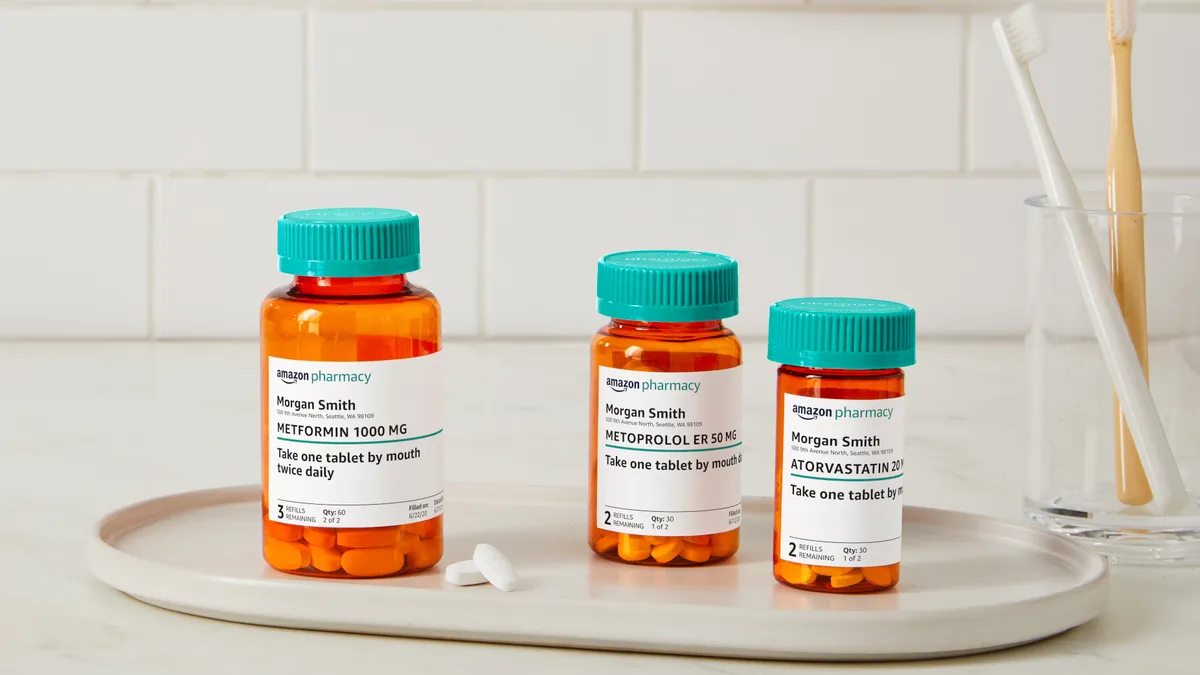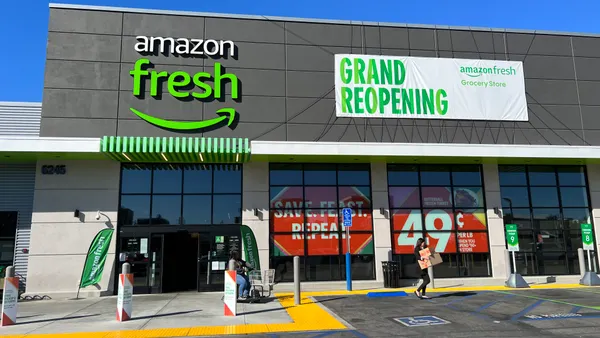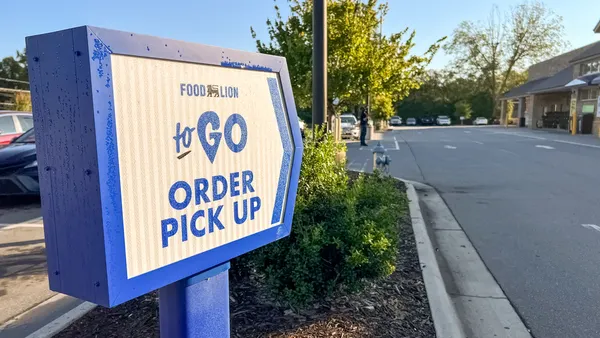Amazon's effort to elbow its way into the competitive retail pharmacy sector may not be as disruptive as some close observers initially thought or had hoped for, as the e-commerce giant continues to slowly march into the space.
However, other experts are quick to warn against underestimating Amazon's penchant to drive change.
Amazon Pharmacy's entrance puts immediate competitive pressure on traditional retail pharmacy outlets. The new venture will largely serve as any other in-network retail pharmacy for consumers using insurance. And it will quickly deliver prescriptions straight to consumers' front doors — a capability that has made Amazon immensely popular as shopping habits continue to shift online.
Amazon has also shaken the retail sector as consumers bypass brick-and-mortar stores in favor of convenience and speed.
Still, some analysts say Amazon is just joining the ranks of those in the pharmacy space instead of upending it — at least for now.
"They certainly are reserving the right to be a future disrupter. But for now, they've decided it's more profitable to play the game than disrupt the game," industry analyst Adam Fein said.
Others call the move a big threat for incumbents, even this initial step. For an industry increasingly consolidating, to have a player that can immediately stand up a retail pharmacy nationwide and tap into a network of an estimated 100 million Prime members is definitely disruptive.
"Why it is such a big deal when they enter these businesses is they start with: 'What are the customer pain points? What do people hate doing? And let's fix all that and worry about the margin later,'" Stephen Tanal, an analyst with SVB Leerink, said.
Rena Conti, a professor at the Boston University Questrom School of Business, noted a central point to the venture's drug business model is a focus on consumer wants and needs. In her talks with now Amazon-owned PillPack months ago, she said they spent months focused on making sure the consumer experience will be seamless.
Now, Amazon will show consumers two prices on all pharmacy transactions, the price without using insurance and the price using coverage. That is "incredibly disrupting," Tanal said. And consumers may be surprised by what they see if many drugs are cheaper without electing to use insurance coverage or by using the discount card program.
Amazon will lean on a subsidiary of pharmacy benefits manager Evernorth (formerly Express Scripts, and now part of Cigna) to administer the program that offers discounts to those paying cash. Discounts cards are already used in the industry and are fairly common.
Being able to see that range of prices is still pretty new to consumers, Tanal argued. Pharmacists were sometimes barred by "gag clauses" from alerting patients to when paying with cash or out-of-pocket was actually cheaper than electing to use the insurance coverage that is supposed to drive down prices for members. In 2018, Congress passed a bill to ban gag clauses in certain plans.
Other observers noted that both those moves are not novel concepts.
"It is not as disruptive as some may have anticipated, nor is it truly innovative. What Amazon Pharmacy does do is take a number of best practices and approaches across the industry and bring them together into a single offering — which is differentiating. They tapped a number of approaches to improving the customer experience around pharmacy delivery," Arielle Trzcinski, a Forrester analyst, said.
Another analyst said the announcement is more of an incremental step with the addition of the discount card program. Industry observers knew Amazon's prescription drug capabilities (and intentions) once it purchased PillPack in 2018, a pharmacy that delivers prescription drugs in pre-sorted packs, mainly to customers who need multiple medications daily to manage chronic conditions.
There's "really nothing new we learned [Tuesday]. It's just bringing the risk [Amazon poses] back, front and center in terms of people's minds," Brian Tanquilut, an analyst with Jefferies, said.
Still, it's certainly unwelcome news for current heavyweights in the pharmacy space.
Tuesday's news threw off shares of CVS Health, Walgreens and GoodRx, another drug discount card program.















